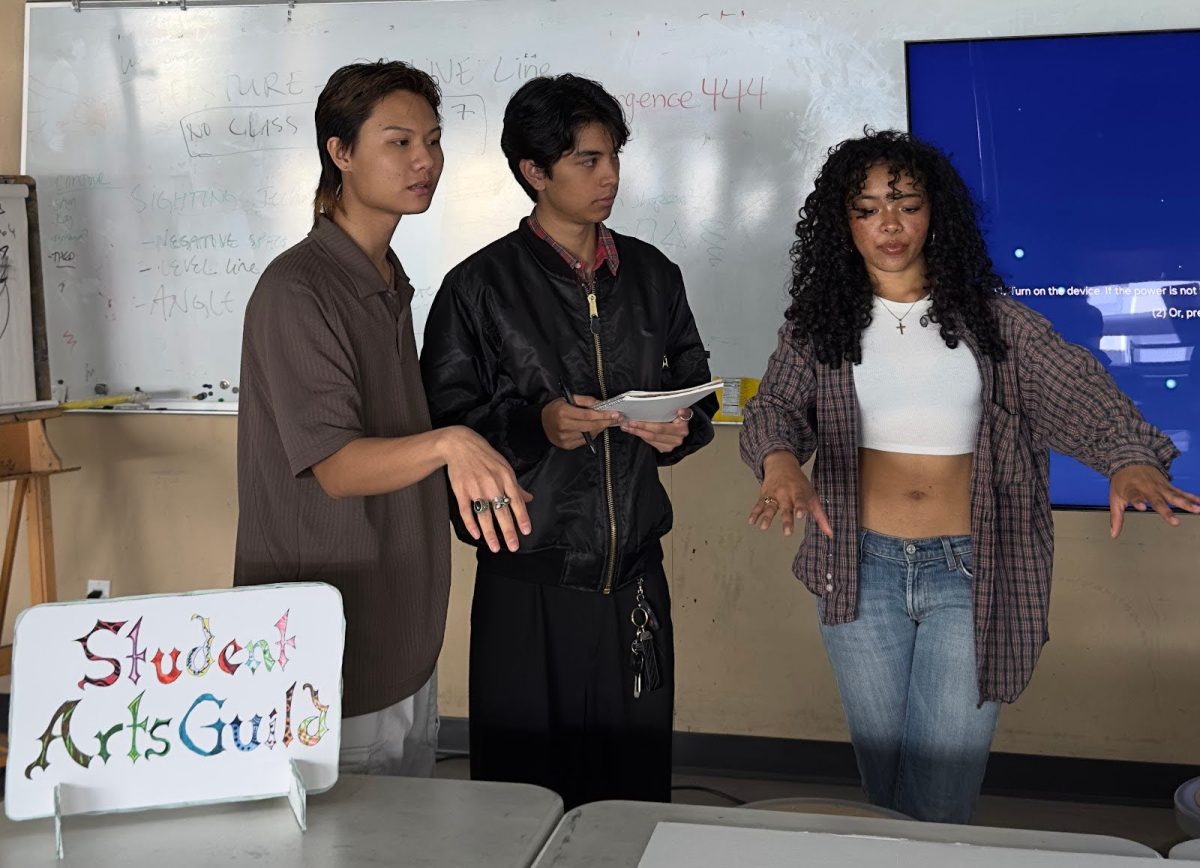January 1, 2009, Oscar Grant III, an unarmed black American was shot and killed at the Fruitvale Bart Station by Bart police officer Johannes Mehserle. It was an event that threw Oakland, and the greater United States into turmoil, and brought into question issues of racism and police violence.
In August of this year Michael Brown, another young, unarmed black man, was shot in the street of Ferguson Missouri by officer Darren Wilson, sparking protests across the States that are still going strong two months later.
The killings of Grant and Brown are far from isolated incidents, and though exact numbers are difficult to quantify, police wrongfully kill dozens of young men of color every year.
Cehpus Johnson, better known as “Uncle Bobby,” the uncle of the late Oscar Grant, came to BCC to discuss these tragedies with students, faculty, and community members, and address what he called a “state of emergency.”
Since his nephew’s killing, Johnson and his wife have traveled across the country, visiting and offering comfort to the families of the victims of unlawful police violence. Most recently their travels took them to Ferguson, where they stood with protestors demanding justice for a life taken so unjustly.
“When you’re upset and angry the worst thing is to be isolated,” said Johnson explaining both his visits to BCC and Ferguson. This faith in the power of community was one Johnson addressed many times throughout the evening, mentioning more than once our responsibility to look out for one another and be “our brothers’ keeper.”
The legacy of racial profiling and the continual criminalization of black American males are problems many of us struggle to accept. It’s difficult to admit that we live in a world full of racial inequality, but as Johnson explained the struggle for justice experienced by his own family and so many other’s, it’s doubtful anyone in the audience could deny the existence of a terrible prejudices.
In the courtroom Grant was “criminalized, dehumanized, and even demoralized” to justify the lethal action taken against him by Mehserle. Supporters of the Grant case, and even Grant’s family, were antagonized by the judge, who Johnson quoted as threatening to drag the case out, for years if necessary, if they would not leave the courtroom.
Ultimately Mehserle was charged with involuntary manslaughter and sentenced to two years. He served eight months.
The case for Brown has yet to be taken up in court and Darren Wilson has yet to be arrested, but, given the history of such cases, many doubt that a trial will lead to justice.
In Ferguson the community response was immediate, and the ensuing protests triggered a violent response from local and statewide police. Their clash in the streets did more than put Ferguson on the map, it placed it in the global spotlight.
Despite a media crack-down, images of Ferguson have spread across the world, taking the messages of the protesters with them.
Johnson spoke of these protesters, many of whom are not much older than 18-year-old Brown, with the highest respect.
“These young people, despite the militarization that they were facing, stood up. And they stood up without fear because they knew that at this point in time, because so many young men are being killed on a regular basis across this country, that they had to say something. So they went off and looked past their own personal wellbeing to speak to this very issue.”
“It wasn’t a riot,” Johnson stated, instead referring to the action on the streets of Ferguson as “a response to the pain and the agony that had been put upon them for decades” by law enforcement agencies.
Wilson, Brown’s shooter, had originally served with the nearby Jennings police department, which had to be disbanded due to corruption and racism. Its officers, Wilson included, were reassigned to the surrounding municipalities.
After recounting the bravery he witnessed in Ferguson Johnson opened up the mic to audience members for discussion, feedback, and questions. Unsurprisingly those in attendance had a lot to say, and took turns sharing their thoughts with each other.
By coming together to speak on an issue that affects us all, those at BCC broke the “isolation” Johnson had warned them of and were able to rely on each other for both knowledge and comfort.
This network of support is what Johnson called “the heart of activism,” the community depending on itself and coming together in times of trial to organize and stand up.
In his closing remarks Johnson asked the audience not to give up, but to stay vigilant, vocal, and most importantly to continue to find the time to work toward change. “It’s not about me. It’s about you, and your babies,” he stated, warning that racial injustice will continue unless we stop it.
The evening ended with a pledge to stand against racism, police murder, and injustice wherever we see it, and to “not be silent” in the face of oppression. These words, spoken together with fists raised in the classic sign of solidarity and resistance, are ones that will likely stick in the minds of all those present.
Categories:
Activism at BCC
November 6, 2014
About the Contributor
In the fall of 2019, The Laney Tower rebranded as The Citizen and launched a new website. These stories were ported over from the old Laney Tower website, but byline metadata was lost in the port. However, many of these stories credit the authors in the text of the story. Some articles may also suffer from formatting issues. Future archival efforts may fix these issues.
























